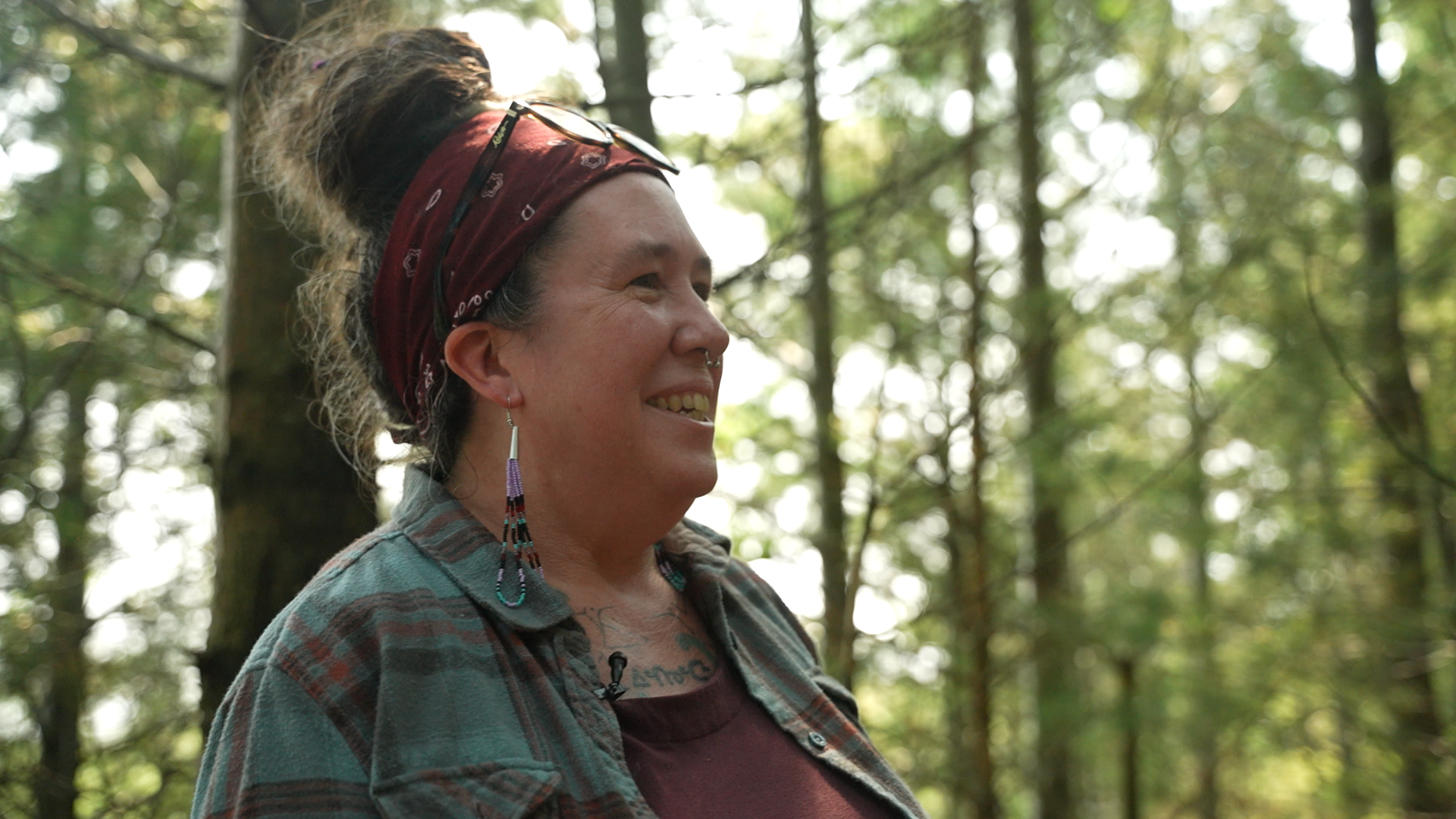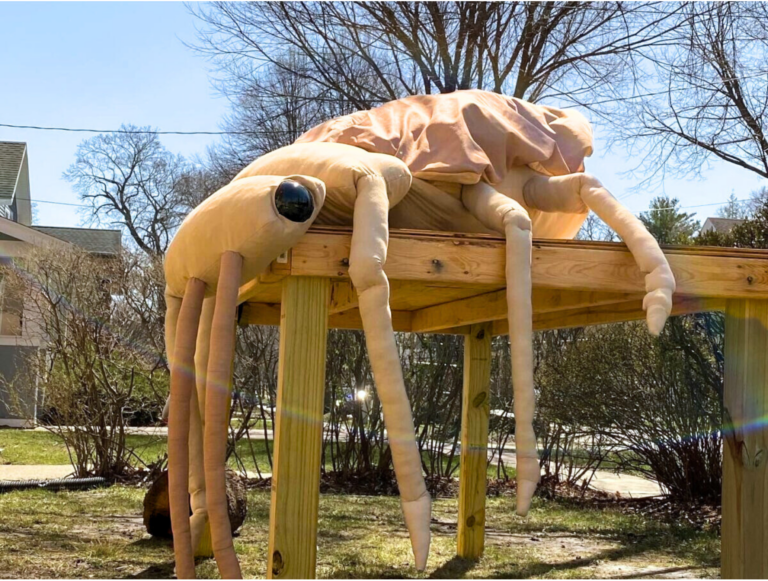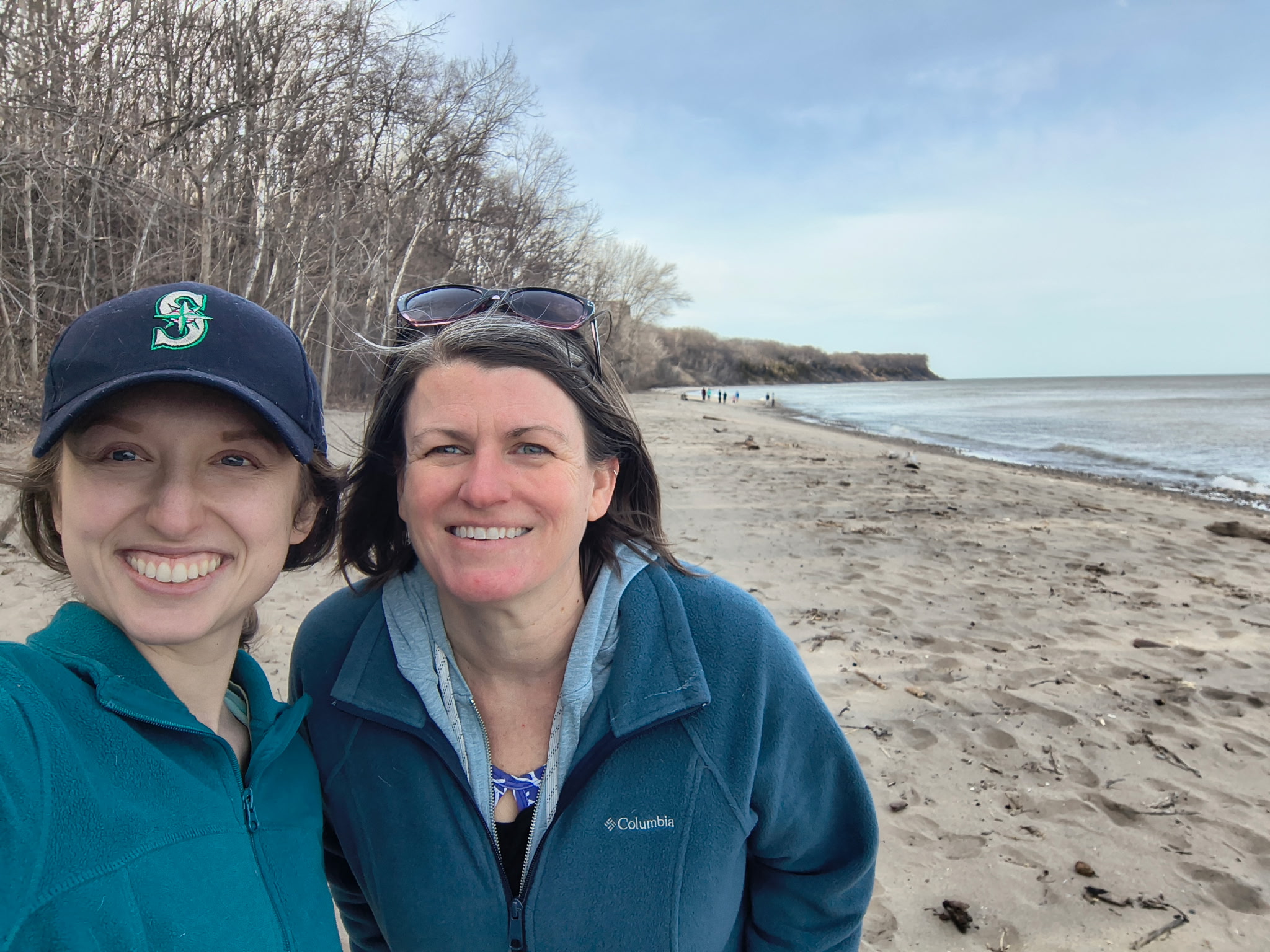Teacher mentor program connects both teachers and students
Teachers with a passion for the Great Lakes are sharing their expertise across the region with other teachers in a program that benefits the educators and their students. The mentor program, organized by the Center for Great Lakes Literacy (CGLL), is funded through the Great Lakes Restoration Initiative.
Wisconsin is home to five teacher mentor/mentee pairs. They’re organized by Anne Moser, senior special librarian and education coordinator for Wisconsin Sea Grant. She explained that this is the first formal year of the program and that it’s growing.
“The teachers we chose for mentoring are really dynamic Great Lakes educators,” Moser said. “They’re so committed to bringing place-based education to their students and then sharing that love for Great Lakes literacy with either colleagues in their school or with their wider community.”
The mentors were chosen from a pool of teachers who had participated in past CGLL programs. Moser explained these teachers are always, “thinking through the lens of the Great Lakes. Whatever they’re teaching, they’re drawing on their knowledge of the watershed.”
The program kicked off last June with a two-day workshop where the mentors and mentees got to know each other better and plan which activities they wanted to work on. A check-in this past fall included a professional learning opportunity, featuring a presentation by Jackson Parr, the J. Philip Keillor Flood Resilience-Wisconsin Sea Grant Fellow who is working with communities on flooding issues. In January of this year, the teachers were introduced to the Watershed Game, an interactive, educational tool that helps people understand the connection between land use and water quality.
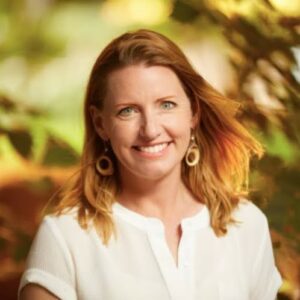
Kelly Koller, Bay View Middle School. Submitted photo.
One of the mentors is Kelly Koller, technology integration specialist at Bay View Middle School in Green Bay. She actually has two mentees: Mona Forbes, an eighth-grade science teacher, and Chandra Johnson, a special education teacher.
Koller first became involved in mentoring when she applied to one of the CGLL summer professional learning workshops aboard the Denis Sullivan sailing ship in 2019. That experience showed her the value of such relationships. For her current mentoring connection, she’s working with Forbes and Johnson to provide their students with opportunities like raising brown trout in the school library and growing wild rice plants.
Koller works in the library and thought the fish would be a great addition. “We didn’t have any pieces of student engagement that were living. Everything is books and decorations, and I thought fish would be an addition that would capture students’ interest.”
Koller organized the fish rearing through Trout in the Classroom, a program offered by Trout Unlimited. By raising the fish from egg stage to adult, the students gain knowledge about the fish and the environment where they live. The goal is to release the trout into a local stream, under the guidance of the Wisconsin Department of Natural Resources.
The wild rice project is being done in conjunction with the University of Wisconsin-Green Bay, which provided the seeds and equipment. The goal is to plant the rice in a wetland the university is working to restore.
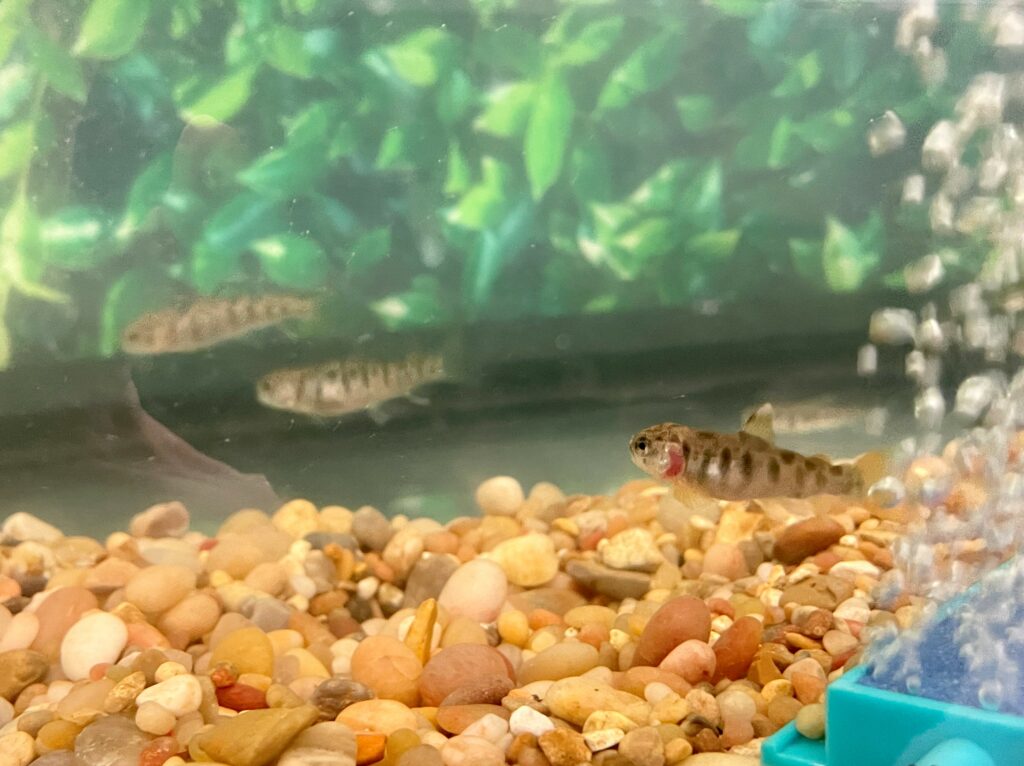
Brown trout raised in the library by students at Bay View Middle School in Green Bay. Submitted photo.
Koller explained she did the heavy lifting to get the projects started so that the weight of organizing didn’t all fall on the mentee teacher’s shoulders, since they had enough challenges already teaching during a pandemic. To orient Johnson’s students to the fish’s environment, she organized a boat trip on Green Bay through Hands on Deck, a local nonprofit.
“So, even before the students started putting together our trout tank and receiving the trout eggs, they were learning about the Great Lakes through being on one of them. Any time you have a shared outdoor experience it helps build relationships and a positive sense of community,” Koller said.
After navigating two months of start-up challenges, Koller received the agency permissions needed to house the tank. Johnson’s students set up the tank and then Forbes’s students took over once the eggs arrived. Three middle-schoolers have shown impressive dedication: Mercades Bryfczynski, Sandra Thompson and Emily Jarmuskiewicz.
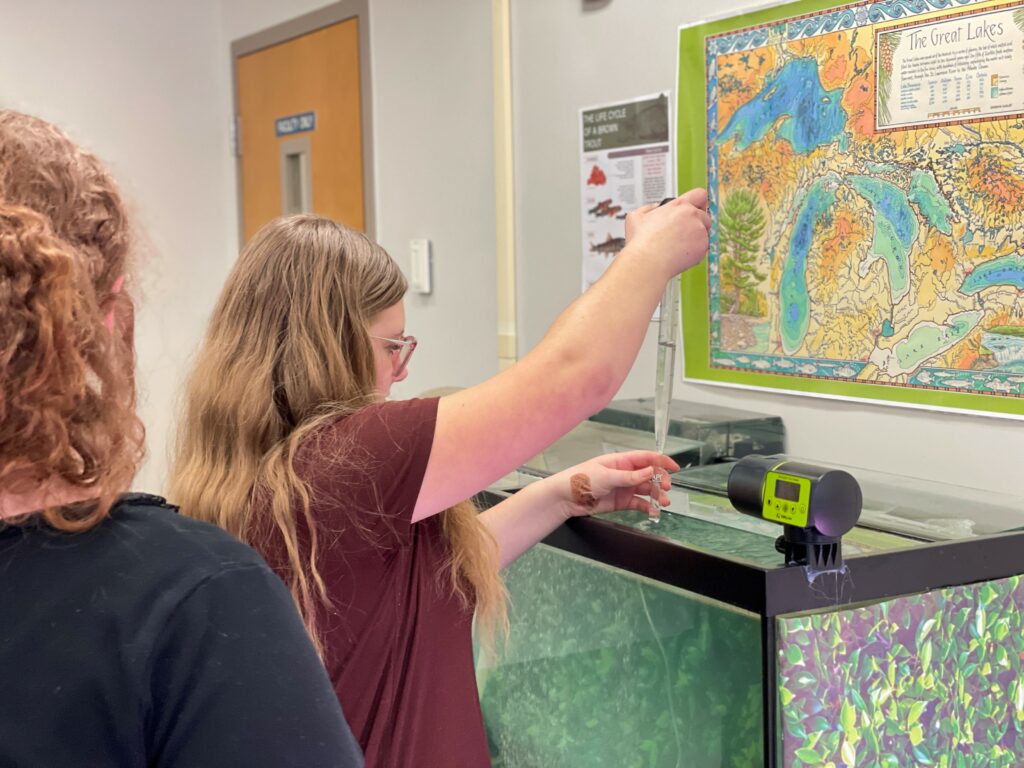
Students at Bay View Middle School test the water quality of their trout tank. Submitted photo.
“They do all the water measurements on their own. They take the pH level, the ammonia level, they change out water daily. They’ve been just wonderful about the caretaking involved with the trout and seeing them grow,” Koller said.
Despite a rough start one weekend after the automatic feeder malfunctioned and a third of the larval trout died, the students said the experience of caring for the fish has made them more interested in nature.
“I’ve been having a little bit more fun in science, learning about the fish,” said Bryfczynski. She also said that seeing the tank sparks interest from other students in the library. “We’ve had people come in and ask us questions about the fish, like how big they’re going to get or how old they’re going to live, and what we do with the tank.”
Jarmuskiewicz said that learning about the fish’s life cycle has sparked her interest in biology. Thompson has also enjoyed watching the fish grow under their care.
When asked if they are excited to release the fish into the wild, the girls all replied with a resounding, “Yes!”
“We hope that they’ll be healthy because they grew up healthy with us, and that they’ll stay healthy in the river once we release them,” Bryfczynski said.
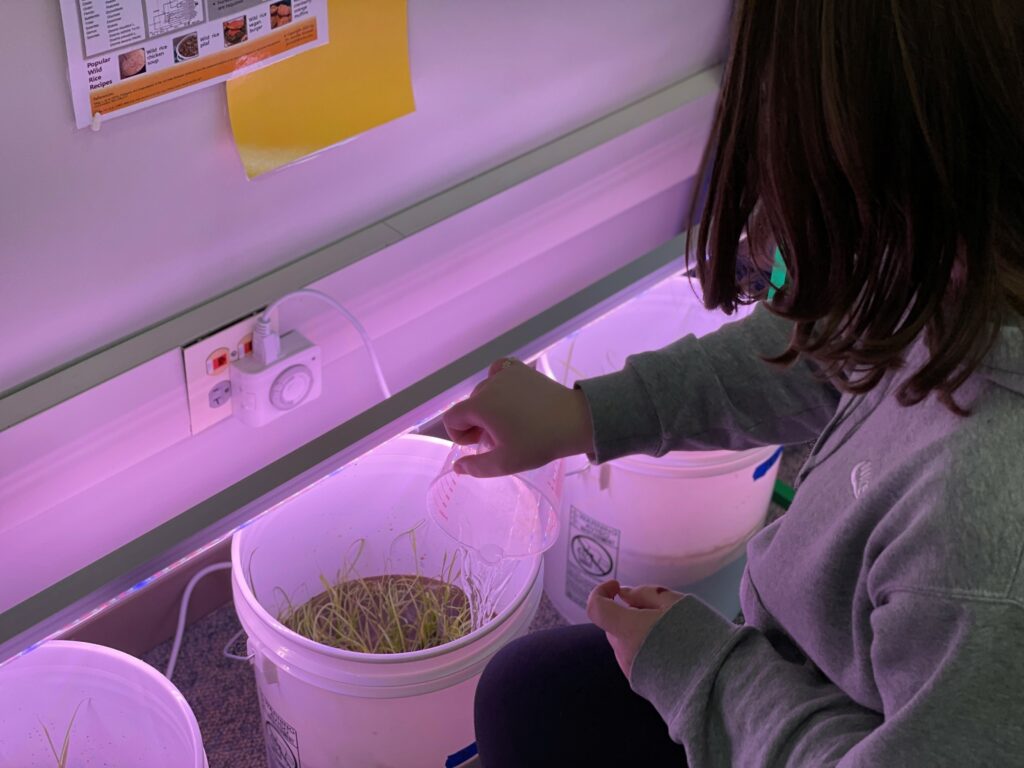
A student tends to the wild rice in a project done in conjunction with the University of Wisconsin-Green Bay. Submitted photo.
At the end of the school year, Moser said the mentor/mentees and their students will gather together for a student showcase. This will offer the students an opportunity to present their project and receive feedback from other students across Wisconsin and Minnesota. In summer, mentor/mentee pairs will be invited to their own summit where they can provide the CGLL network feedback about their experiences. The goal of both events is to build a community of educators passionate about Great Lakes literacy and to build a community of youth who will be future stewards of the Great Lakes watershed.
“It’s been an exciting year, even as we have had to navigate the challenges of a global pandemic. To work with such passionate and resilient educators has been a gift,” Moser said.
A new mentor/mentee cohort will be formed in the fall of 2022. Please contact Anne Moser if you are interested in learning more.
Here’s a link to a video that the students created about their experience setting up the trout tank.



